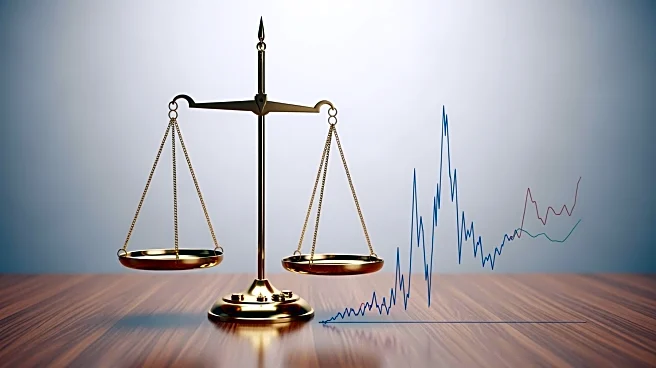What's Happening?
The U.S. Supreme Court recently heard arguments regarding the legality of tariffs imposed during the Trump administration. Both liberal and conservative justices expressed skepticism about the legal foundation
of these 'reciprocal' tariffs. Following the hearing, market predictions indicated a reduced likelihood of the tariffs being upheld, dropping from a 50% chance to 26%. Despite this, U.S. stock markets experienced a rise, recovering from previous losses. However, the potential end of these tariffs could lead to the U.S. government needing to refund billions in collected duties, which might increase national debt and subsequently raise Treasury yields. This scenario could exert pressure on stock markets. Additionally, President Trump might use other executive powers to reinstate tariffs, adding further uncertainty for businesses and markets.
Why It's Important?
The Supreme Court's decision on the Trump tariffs holds significant implications for U.S. economic policy and international trade relations. If the tariffs are deemed illegal, it could lead to substantial financial repercussions for the U.S. government, including increased debt and higher Treasury yields. This could negatively impact stock markets and create volatility. Businesses that have been affected by these tariffs might experience relief, but the potential for President Trump to reimpose tariffs through other means could maintain a climate of uncertainty. The outcome of this case is crucial for industries reliant on international trade, as it could influence future trade policies and economic strategies.
What's Next?
Should the Supreme Court rule against the tariffs, the White House may be compelled to refund the collected duties, impacting the federal budget. This could lead to increased borrowing and higher interest rates. Businesses and investors will be closely monitoring the situation, as any decision could affect market stability and trade operations. Additionally, if President Trump decides to reintroduce tariffs through alternative executive actions, it could lead to further legal challenges and policy debates. Stakeholders in the business and political sectors will need to prepare for potential shifts in trade policy and economic conditions.









